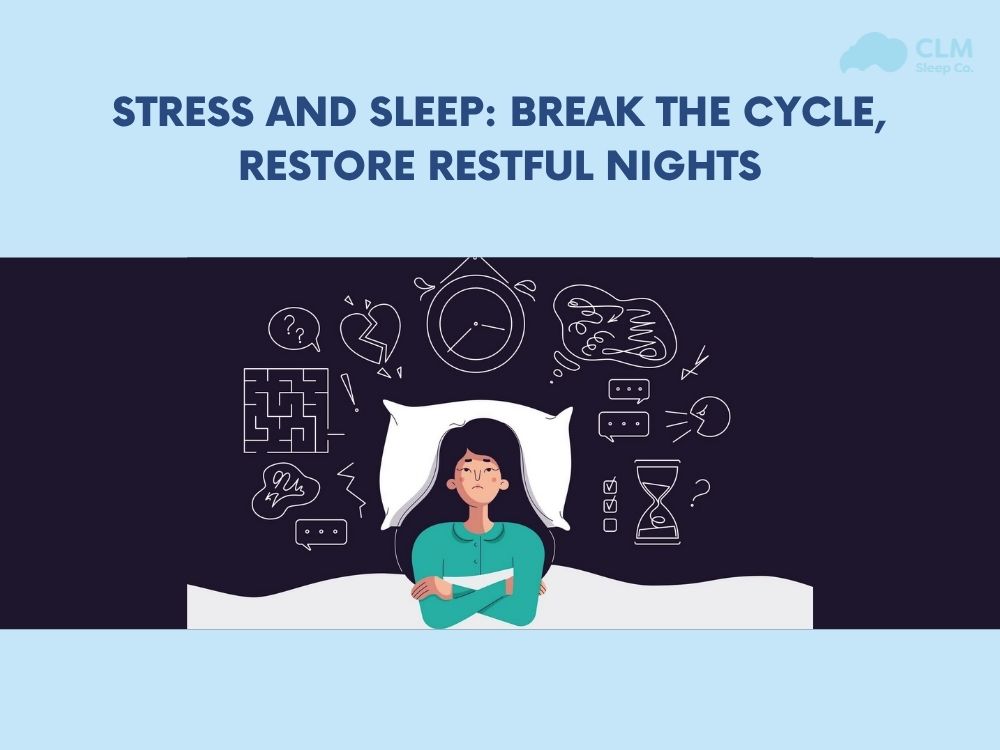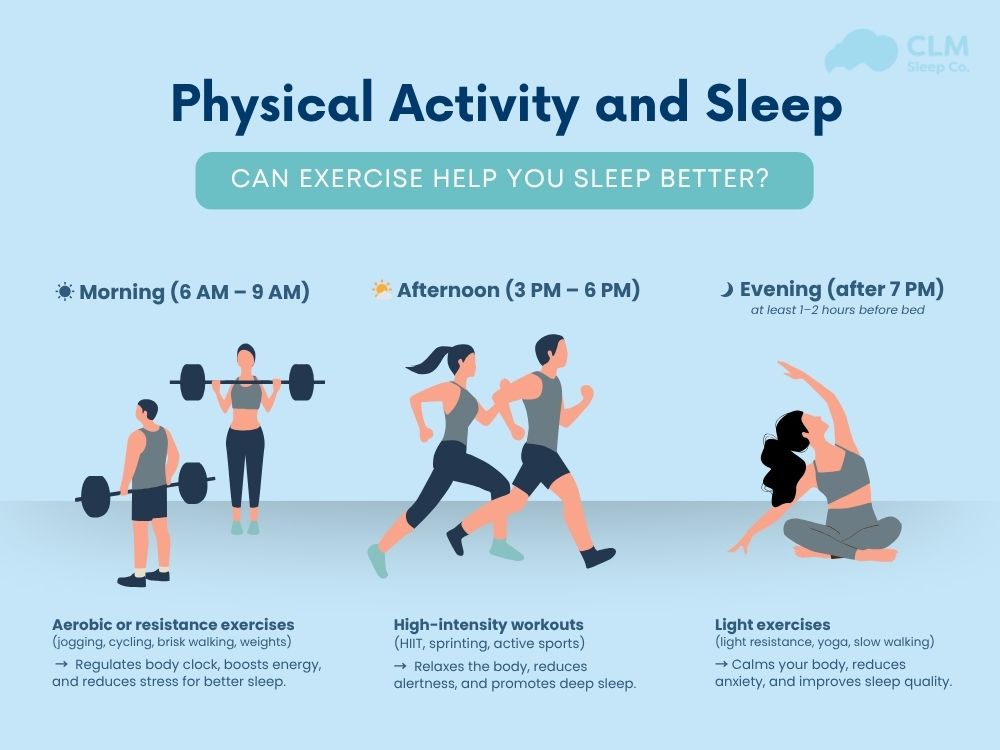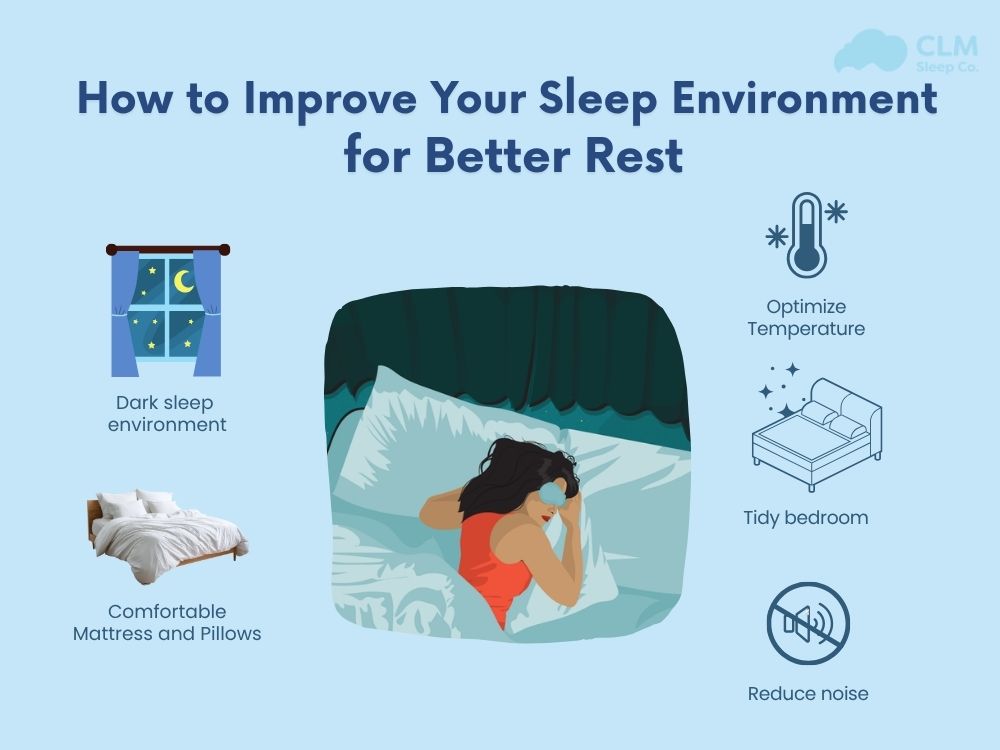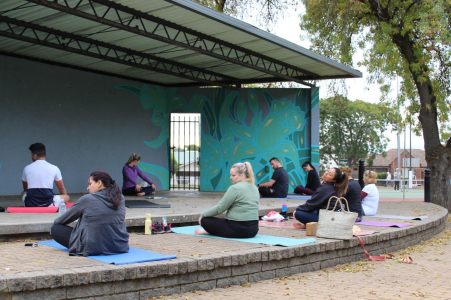Surely anyone among us has had sleepless nights because our minds cannot stop thinking. The connection between stress and sleep runs deeper than we think what happens during the day can shape how well we rest at night. This article will help you understand how stress disrupts sleep, why this vicious cycle is hard to break and the most effective ways to restore calm, consistent and truly restful nights.
Overview of Stress and Sleep
Stress is the body’s natural response to pressure. In short bursts, stress can even be helpful, pushing us to stay alert or meet deadlines. But when the stress lasts, it begins to interfere with one of our body’s most essential recovery processes: sleep.
For example, imagine a student preparing for the final exam. A little stress keeps them focused and motivated. But when that state lasts for several weeks of continuous study, anxiety before sleep, and a mind that keeps thinking, the body does not truly get rest or relaxation. Even after lying in bed, their mind stays active, heart rate elevated and sleep becomes shallow or delayed. What once helped them perform now prevents true rest.
Sleep is not just rest, but also a process of regenerating energy for the body. During the night, the brain organizes memories, the body restores tissues and hormones rebalance. When stress disrupts sleep, we enter a damaging feedback loop: stress leads to poor sleep, poor sleep amplifies stress. Over time, this affects mood, performance, and even long-term health.
Read more: Why do we need sleep
What Happens to Your Body Under Stress
When you’re stressed, your body releases a surge of hormones most notably cortisol and adrenaline. These chemicals prepare you for the classic “fight or flight”, sensations felt in your body are a faster heartbeat, tensed muscles, and a heightened sense of alertness.
Prolonged stress keeps your nervous system activated long after the source of stress is gone. High cortisol levels at night prevent the decrease in body temperature and the relaxation necessary for deep sleep. Meanwhile, the brain continues to function, constantly planning and worrying, instead of shutting down to rest.
Over time, this continuous activity not only affects the ability to fall asleep but also reduces the duration and quality of sleep. Especially the deep and REM sleep that restore both mind and body.
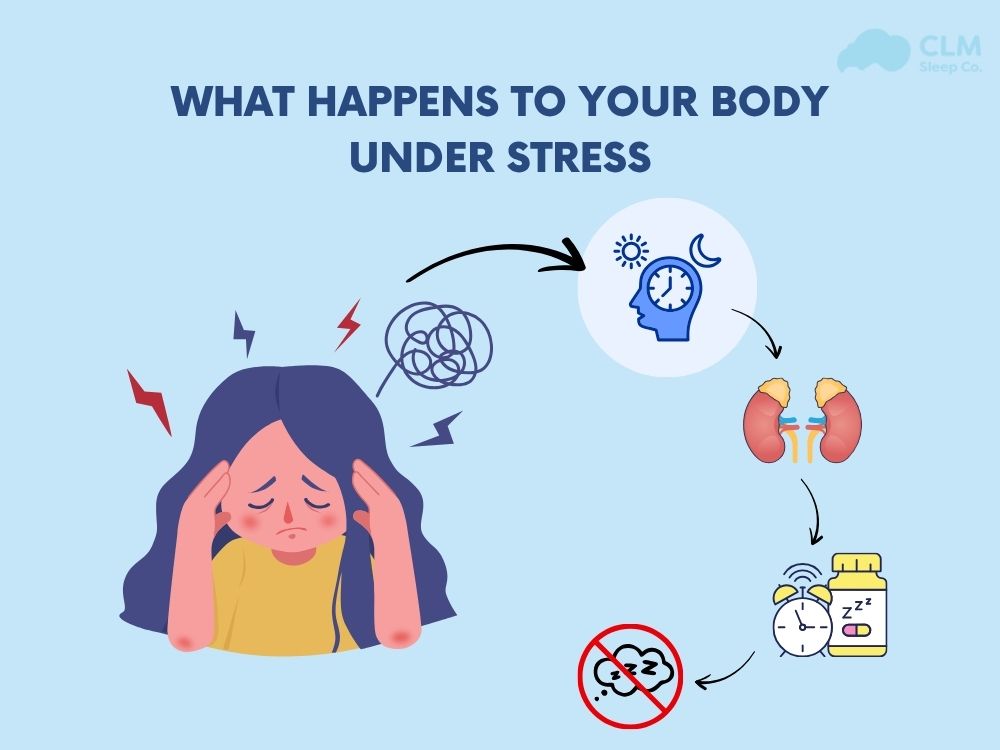
Read more: Stages of sleep
How Stress Affects Sleep Quality
The relationship between stress and sleep is bidirectional. Insomnia causes the brain to react more strongly to stress; while stress makes sleep shallower and more restless. The amygdala, a brain region involved in fear and anxiety, becomes overactive when sleep deprived.
And so a loop is formed: the more stressed, the harder it is to sleep; the more lack of sleep, the more stressed. When this continues, it can easily lead to anxiety, affect mental health, and cause sleep disorders, because the body can’t relax enough to rest.
Difficulty falling asleep
Stress delays sleep onset by keeping your mind in problem solving mode. Instead of winding down, your thoughts are accelerating. People often say that they lie in bed and recall conversations, worry about deadlines, or plan for the next day. This mental overactivity prevents the release of melatonin, the hormone that signals it’s time to sleep.
Waking up during the night
Even when you try to sleep, stress still makes it hard for you to maintain sleep. Cortisol peaks in the early morning, but when stress levels are consistently high, this rise happens prematurely, causing frequent awakening around 2-4 AM. The excessive activity of the brain prevents the release of melatonin, a hormone that signals it’s time to sleep.
Shorter deep sleep
The deepest sleep stage is when the physical and mental recovery process takes place. For those with chronic stress reduces the proportion of deep sleep, leading to lighter, and less restorative rest. As a result, you wake up feeling exhausted, even though technically you have slept “enough.”
How to Reduce Stress for Better Sleep
Studies have shown that poor sleep often amplifies negative thinking patterns, while getting enough sleep helps the brain process emotions and stress more effectively. Improving sleep quality through good sleep hygiene practices, therefore, is not only about feeling rested, it’s a critical part of maintaining psychological resilience.
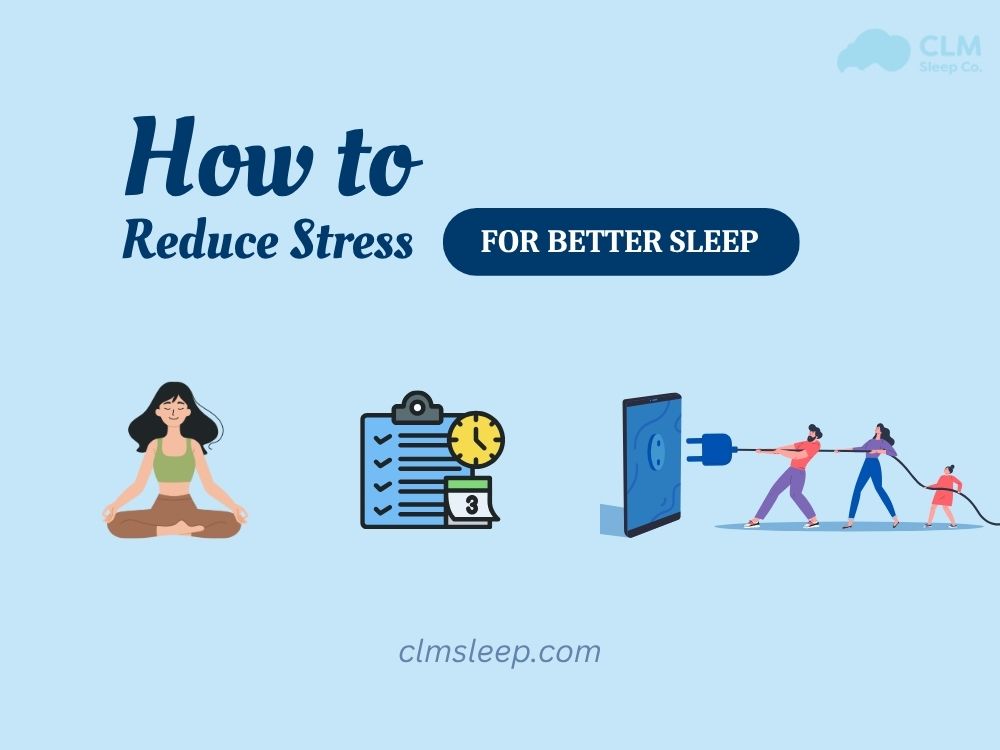
Create a relaxing bedtime routine
A bedtime routine acts as a signal to your body that it’s time to rest. This may include dimming the lights, stretching, reading a book, or taking a warm bath. Repetition matters, when done consistently, your body begins to associate these actions with relaxation and reducing stress hormones even before you go to bed.
Try relaxation techniques
Simple exercises like deep breathing, progressive muscle relaxation or guided imagery can calm the nervous system. Even five minutes of mindful breathing, practicing meditation can slow the heart rate and reduce mental stress. Over time, these rituals strengthen your brain’s ability to shift from “stress mode” to “rest mode”
Limit stimulants and screens before bed
I think you know, both caffeine and electronic devices are silent sleep killers. Caffeine can remain in your body for up to eight hours, blocking adenosine, a chemical that causes sleep pressure. Similarly, exposed to blue light and sleep disruption go hand in hand, It inhibits the production of melatonin, tricking the brain into thinking it is still daytime.
Keep a consistent sleep schedule
When irregular sleep hours disrupt your biological rhythm. Going to bed and waking up at consistent hours helps regulate cortisol and melatonin cycles naturally. Even small changes, such as maintaining a schedule on weekends, make a noticeable difference in how refreshed you feel.
Journaling or to-do list before bed
Stress often stems from unprocessed thoughts. Writing them down before going to bed will help you relieve worries, allowing your brain to relax. Some people find it helpful to jot down what went well that day or a short to do list for tomorrow. This allows your mind to rest, knowing that nothing important is forgotten.
Read more:
>> How to Get More Deep Sleep
>> How to Get More REM Sleep Naturally
Conclusion
Stress and sleep are closely related, By understanding the biology of stress, addressing daily triggers and creating a healthy sleep environment will help you restore physical and mental balance. Your journey to better sleep begins not with drastic changes, but with consistent, mindful choices each night. If you are still having trouble sleeping due to stress, contact CLM immediately for FREE consultation and receive personalized guidance just for you.
